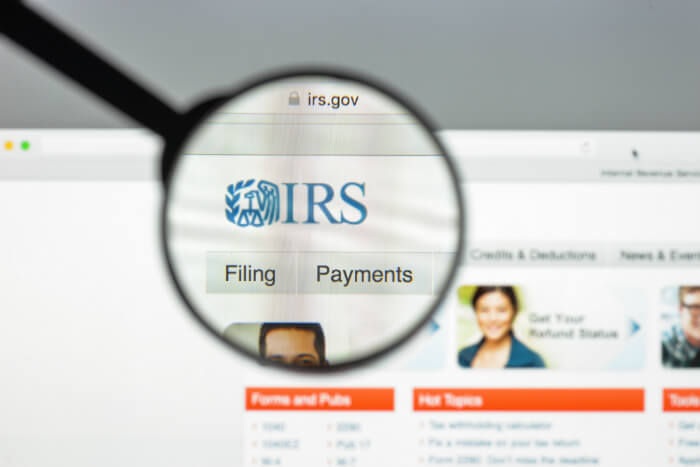Airbnb Tax Return: What Airbnb Hosts Need to Know

Airbnb taxes are fairly complicated. That is true whether you’re filing taxes for the first time as an Airbnb host or you’re a seasoned tax professional with decades of experience. If you want to make sure that you are in compliance, planning ahead is essential.
To help you navigate the preparation of your own Airbnb tax return, here are the answers to your most commonly asked Airbnb tax questions:
1. Do I Have to Pay Taxes on My Airbnb Income?
The short answer is ‘yes.’ The only exception to this rule in the U.S. is if you rent your property out for less than 14 days per year. However, as a professional short-term rental host and not a hobbyist, your short-term rental activities will likely be considered as a business by the tax authorities.
2. How Much Taxes Would I Pay for My Airbnb Income?

The amount of taxes or Airbnb co-host taxes that you have to pay will depend on your rental income and any deductible expenses that you might be able to claim. Deductible expenses reduce your taxable income so that you pay less tax. You can estimate the amount of tax you might owe on your Airbnb income by using a tax calculator.
In addition to your annual tax filing, you may also be required to pay estimated taxes on your Airbnb income. Estimated taxes are paid throughout the year on a quarterly or monthly basis depending on your earnings.
3. What Do I Need to Keep Track of in Order to Prepare an Airbnb Tax Return?
In order to prepare your Airbnb tax return, you’ll need to make sure to keep track of your Airbnb income, as well as, any expenses related to your Airbnb business. You can obtain records of your Airbnb rental activities simply by exporting this information from your Airbnb host dashboard.
As a business owner, there are likely a number of expenses related to your Airbnb income that you’ll be able to deduct. Therefore, keep all receipts and invoices related to purchases that you’ve made for your Airbnb business.
Keep a log of the dates in which your property was rented and was not rented out. These dates are important for determining how often your property was used for rental activities for the purposes of calculating your deductions.
Finally, you’ll also need to keep any tax documents that you’ve received from Airbnb for reconciliation purposes.
4. Will I Receive Any Tax Documents From Airbnb?

If you earn more than $20,000 and you also successfully complete 200 or more Airbnb transactions in a calendar year, you’ll receive a Form 1099-K from Airbnb. Airbnb will also directly report your rental income to the IRS.
Make sure that you reconcile your Form 1099-K against the earnings reported in your Airbnb dashboard. This way you can ensure that your Airbnb tax return matches what Airbnb has reported to the IRS.
5. What Forms Do I Use to File an Airbnb Tax Return?
Airbnb hosts file an Airbnb tax return using either Schedule C or Schedule E (Form 1040). Schedule C is used to report business income while Schedule E is used to report passive income. Since the majority of Airbnb hosts provide services to their guests, their income is not considered to be passive. Therefore, these hosts must file taxes using Schedule C.
When you are a Schedule C filer, you must also pay Self-Employment Tax, namely Social Security and Medicare Tax. Self-Employment taxes are paid quarterly or monthly, depending on your Airbnb income.
6. What About Local Taxes?
In addition to federal taxes, you may also owe state and local taxes on your Airbnb income. In order to figure out what taxes you’ll need to pay, get in touch with the tax authorities for the area where your property is located. Local taxes that Airbnb hosts typically have to pay include sales tax and occupancy tax.
In certain jurisdictions, Airbnb may collect and remit occupancy tax, also known as hotel tax, lodging tax or transient occupancy tax, on your behalf. This means that these taxes will be automatically added to a guest’s bill. Here is the complete list of jurisdictions where Airbnb collects taxes on behalf of hosts.
Still as an Airbnb host, you are ultimately responsible for fulfilling your obligations when it comes to local taxes. So even if Airbnb does not collect local taxes on your behalf, they must be paid. You may also be required to file lodging tax returns in order to report the amount of tax collected even if Airbnb is doing it on your behalf.
7. What Business Expenses Can I Deduct?
Airbnb hosts can deduct a variety of expenses that are directly related to their rental activities. For example, you can deduct:
- commissions and fees charged by Airbnb
- the costs of furnishing your rental
- marketing and advertising costs for your Airbnb business
and a portion of the:
- homeowner’s insurance
- mortgage interest
- property taxes
- utilities
For the costs of owning and maintaining your property, you may only deduct the portion of the costs that can be allocated to the rental unit on your Airbnb tax return.
Depreciation is one of the biggest deductions for Airbnb hosts. Depreciation is the reduction in value of property over time. Depreciation can be spread out over many years when it comes to Airbnb tax returns providing yet another way to decrease your taxable income.
8. Should I Hire a Tax Professional?

The information provided in this article should not be considered as tax advice. We recommend that you consult a CPA or tax professional in order to get Airbnb tax advice that applies to your specific situation. By working with a tax professional to prepare your Airbnb tax return, you can greatly reduce the chances of being cited for Airbnb tax evasion and avoid paying more taxes than you actually owe.





![Your Monthly iGMS Roundup [February 2020]](/content/images/size/w600/wordpress/2020/02/igms-roundup-feb-2020-cover.png)

